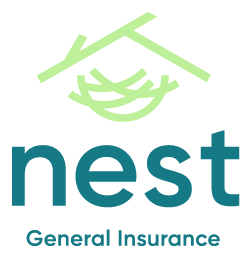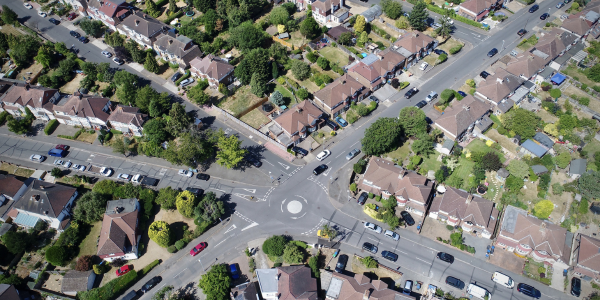Every industry uses a number of unique or technical terms – and insurance is no exception. These are not always easily understood, which can lead to confusion and misunderstandings but we want to help simplify this for you so we’ll take you through some of the common insurance terms and answer common questions like ‘What does policyholder mean?’ and ‘what does insurance mean?’ to make sure you have a full understanding when you come to take out a policy. Let’s get into it!
What does insurance mean?
Insurance provides a safety net against uncertainties, offering financial protection when unexpected events occur. Whether it’s insuring a home, a vehicle, or your health, insurance provides a sense of security and peace of mind.
Home insurance is essential for both homeowners and tenants, serving as an important protective measure. Your home isn’t just a physical space; it’s where memories are made and represents a significant financial investment.
Life’s unpredictability means that unforeseen circumstances can affect anyone, which is why it’s important to safeguard your home. Home insurance provides reassurance that in the event of damage or loss to your home or its contents, you’ll have the financial support required to recover and rebuild.
Insurance policy definition
An insurance policy is a formal contract between an insurance provider and an individual needing financial protection against specified risks. This agreement outlines the terms and conditions under which the insurer agrees to compensate the policyholder for covered losses or damages in exchange for the payment of premiums. These policies are tailored to meet your needs, in terms of the scope of coverage, limits, excesses, and any exclusions.
Essentially, an insurance policy serves as a legal document that outlines the rights and obligations of both parties.
What does policyholder mean?
The policyholder is whoever owns the insurance policy covering their property. Whether you are a homeowner, landlord or a tenant, the policyholder is the person responsible for purchasing, maintaining the insurance policy and ensuring the information is correct.
As a policyholder, you enter into a contractual agreement with the insurance company, paying premiums in exchange for coverage against various risks, such as damage to your home’s structure, personal belongings, liability for injuries on the property, and additional living expenses if the home becomes uninhabitable.
As the policyholder, you have the right to file claims for covered losses and receive compensation according to the terms and conditions outlined in your insurance policy.
Insurance Glossary
It’s time to get to grips with insurance terminology! A-Z insurance terms, let’s go!
A-C
Actual Cash Value (ACV)
The value of any property that has incurred loss or damage at the moment of the incident.
Accidental Damage
Accidental damage is physical damage that happens out of the blue and is not done on purpose. Some insurers will offer a basic level of accidental damage cover as standard which will cover specific items or events however we recommend that you look to take full accidental damage which will cover more events and items.
Additional Premium
An extra payment is required by the insured due to a policy amendment that might have heightened the risk, altered policy conditions or changed the sum insured.
All Risks
The term used to describe insurance coverage against the loss or damage of property arising from any unexpected cause, excluding only those expressly excluded.
Appraisal
The evaluation of property value or the extent of property damage which is conducted by an authorised individual. Appraisals are conducted to determine the property’s value at the time of a loss.
Arson
The deliberate and malicious act of setting fire to property.
Average
A clause found in insurance policies where, in the event of under-insurance, the insurer’s payout is limited to the same proportion of the loss as the sum insured under the policy bears to the total value of the insured item.
Bedroom Rated
This is where the Home Insurance policy premium is calculated based on the number of bedrooms that are at the property rather than the value needed to be covered.
Buildings
The buildings can be described as the physical structure of the property including the walls, roof and floors.
Cancellation
The premature termination of an insurance policy before its scheduled expiration/renewal date. Policies may contain cancellation fees & clauses, specifying conditions under which the policy can be cancelled with notice, generally, there is around a 14-day cooling off period after the start date of the policy.
Certificate
A Certificate is a document issued by an insurer as proof that insurance coverage is active.
Claims
Claims arising from loss suffered by the insured, leading to the policyholder contacting their insurer to claim to gain compensation or fix the damage caused by an insured event. Claims typically have to be declared to future insurance providers/policies for 3 – 5 years.
Contents
The contents can be described as the items inside the property, like furniture and freestanding appliances.
Cover Note
A Cover Note is a temporary insurance document provided by an insurer or broker to the insured, confirming the details of the coverage that is in effect before the issuance of the actual policy documents.
D-F
Deductible
The specified amount of loss that must be exceeded before a claim becomes payable, with only the portion exceeding the deductible being recoverable. This can often be referred to as ‘excess’.
Endorsement
A modification to a policy’s wording that either expands or restricts the coverage provided or imposes specific conditions. These are reflected on the Policy Schedule.
Excess
The initial portion of a loss or claim that the policyholder is responsible for contributing. Excess can vary depending on the type of claim, and the policyholder can often select a total excess or the insurer can impose an increased excess for specific types of claims.
Exclusion
Exclusion is where the insurer removes the liability/cover under certain circumstances or for specific types of loss.
G-I
Hazard
A condition that either creates or amplifies the likelihood of a loss occurring. E.g. the presence of a wood-burning stove may elevate the risk of a fire-related loss.
Inception Date
The date specified in a policy from which the insurer is considered to be at risk according to its terms. This is normally needed from the exchange date for new property purchases or the renewal date for existing insurance policies.
Insurable Value
The worth of the insurable interest that the insured holds in the occurrence or event being insured. It represents the amount that the insurer would pay out in the event of total loss or destruction, assuming full insurance coverage.
Insurable Interest
Insurable interest means that you would suffer a loss should something happen to that property or individual. You can only take out insurance for something or someone that you have an insurable interest in.
Insurance Broker/Intermediary
An Insurance Broker is a professional intermediary who advises clients on insurance matters and arranges their insurance policies. Insurance brokers are specialists with professional expertise in handling insurance transactions as they assess your specific needs and tailor a policy to them.
Insured
The individual whose property is covered by an insurance policy.
Insurer
An insurance company or underwriter that, in exchange for a premium, agrees to compensate the insured for any loss or damage incurred as a result of a specified incident, in accordance with the terms outlined in the policy.
J-L
Lapse
The termination of a policy due to non-renewal for any reason.
Limit
The maximum liability of the insurer under an insurance policy this is often expressed as “per accident,” “per event,” “per occurrence,” “per annum,” etc.
Loss
Another term used to refer to a claim, indicating the amount of damage or injury suffered by the insured for which compensation may be sought from the insurer.
Loss of Rent
Loss of rent insurance enables you to claim back lost income if your rental property becomes uninhabitable due to an insured event and your tenants are forced to move out.
M-O
Mid-term Adjustment (MTA)
This is where a change is made to the policy prior to the end/renewal date.
Negligence
Negligence is a failure to exercise appropriate care that is expected to be exercised, such as ignoring an ongoing issue that can then lead to a larger issue or further damage.
Net Premiums
Net Premiums typically refer to gross premiums minus any reinsurance premiums payable, commissions, fees, taxes, or a combination of these deductions.
New for Old
Should you need to make a claim, you’ll be given the equivalent value of the item that has been lost, damaged or stolen as a brand new item meaning that wear and tear will not be taken into account when assessing the value of the item.
Non-Disclosure
Non-disclosure occurs when a person fails to disclose a material fact or circumstance to the underwriter before the acceptance of the risk. This omission can affect the validity of the insurance contract and the insurer’s liability.
P-R
Peril
In insurance, the definition of peril is any event, situation, or incident that causes property damage or loss. Examples such as Fire, theft, wind, and vandalism are common perils that insurance can cover.
Period of Risk
The duration of cover that is provided and only during this time can the insurer be held liable according to the terms outlined in the policy.
Policy
A document issued by an insurer that covers the terms and conditions in an insurance contract, serving as legal evidence of the agreement to insure. It is typically accompanied by a Schedule, which details any modifications to the terms and conditions.
Policy Holder
The individual in whose name the policy is issued is also known as the insured or assured.
Policy Summary
A document provided by an insurer offering a concise overview of the policy’s provisions, including significant benefits, exclusions, and limitations.
Premium
The amount that the policyholder must pay in order to obtain the insurance (also known as the price of the policy).
Property Owners Insurance Policy
A policy to safeguard the property of the policyholder while also covering personal liability for injuries or damage sustained by others.
Public Liability
If a member of the public is hurt or damage is caused to their property by your property and they were to sue, this claim would look to be covered by the public liability cover.
Quote Summary / Illustration / Statement of Insurance
Provided by an insurer or broker to a proposer in response to a request for a quotation. It outlines the premium offered, any applicable excesses, assumptions made, and details of significant exclusions, limitations, or benefits.
Reinstatement/Rebuild Cost
Reinstatement/Rebuild cost is the estimated amount of how much it would cost to completely rebuild the property. This is the minimum amount that the Mortgage Lender will require you to be covered for as a term of the mortgage.
Renewal
The process of extending an insurance policy from one period of risk to the next. This is generally a year after the initial start date with the renewal offer being sent around 4 weeks before the renewal date.
S-U
Schedule
The schedule provides an outline of the cover provided by the policy and often acts as the certificate to evidence proof that insurance coverage is active.
Statement of fact
The Statement of fact is the summary of the information you have provided to obtain the policy.
Subject to Survey
A term used by an insurer to indicate provisional acceptance of an insurance policy, contingent upon inspection by a surveyor. The surveyor’s report is necessary to determine the applicable rate and conditions.
Sum Insured Policy
This is where the Home Insurance policy premium is calculated based on the sum that you need to be covered for rather than the number of bedrooms.
Tenant’s Liability
Tenants’ liability insurance is designed for renters. It offers you protection if you accidentally damage your landlord’s fixtures, fittings or furniture, and could prevent you from losing your security deposit when you move out.
Total Excess
Total excess is where the insurer’s compulsory excess and the selected voluntary excess are added together, the total excess is the amount that the policyholder is responsible for contributing towards a loss or claim (the total excess might vary between different types of claims).
Underinsured
This is where the insurance cover in place does not cover the amount that is required.
Unoccupied
An Unoccupied property means that nobody is living at the property. Insurers will often ask that the property is a person’s main home and is occupied for at least 3 to 4 nights to be deemed as occupied. An unoccupied property requires a specialist policy.
Utmost Good Faith
This principle requires both parties—the insurer and the insured—to disclose all material facts relating to the proposed insurance clearly and accurately. Any failure to fulfil this duty by the proposer may give the insurer grounds to reject liability.
V-Z
Wear and Tear
This refers to the decrease in the value of the property due to damage occurring over time. This is something home insurance will not cover as it is the homeowner’s responsibility to maintain the property in a good state of repair.
Insurance terms made clear with Nest
We hope this overview of home insurance terminology has helped to make things more clear for you!
By familiarising yourself with these terms, you can navigate insurance with confidence and make sure you have the right coverage to protect your home and belongings.
For any further help or to get your own tailored insurance policy for your specific needs please give us a call or an email – get in touch!








